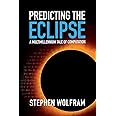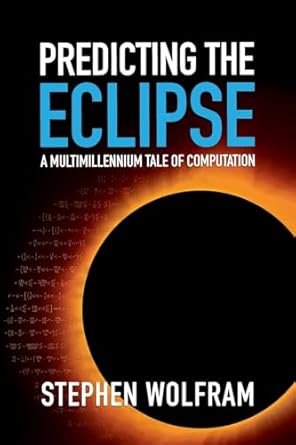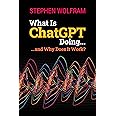
Amazon Prime Free Trial
FREE Delivery is available to Prime members. To join, select "Try Amazon Prime and start saving today with FREE Delivery" below the Add to Cart button and confirm your Prime free trial.
Amazon Prime members enjoy:- Cardmembers earn 5% Back at Amazon.com with a Prime Credit Card.
- Unlimited FREE Prime delivery
- Streaming of thousands of movies and TV shows with limited ads on Prime Video.
- A Kindle book to borrow for free each month - with no due dates
- Listen to over 2 million songs and hundreds of playlists
Important: Your credit card will NOT be charged when you start your free trial or if you cancel during the trial period. If you're happy with Amazon Prime, do nothing. At the end of the free trial, your membership will automatically upgrade to a monthly membership.

Download the free Kindle app and start reading Kindle books instantly on your smartphone, tablet, or computer - no Kindle device required.
Read instantly on your browser with Kindle for Web.
Using your mobile phone camera - scan the code below and download the Kindle app.

Follow the author
OK
Predicting the Eclipse: A Multimillennium Tale of Computation Paperback – January 28, 2024
Purchase options and add-ons
Total eclipses of the Sun are rare and dramatic--and on April 8, 2024, one will cross the US. But when exactly will it happen? In this short but richly illustrated book, prominent scientist and computation pioneer Stephen Wolfram tells the triumphant and hard-won story--spanning more than two thousand years--of how science, mathematics and computation have brought us to the point where we can now predict the time of the eclipse to within one second. Learn how the problem of eclipses brought us some of the earliest exact science, the first known computer, contributions from many of the all-time greats of mathematics and physics, and critical technology for the space program. See how all this provides a clear, modern understanding of a phenomenon that has surprised and amazed throughout human history.
- Print length112 pages
- LanguageEnglish
- PublisherWolfram Media
- Publication dateJanuary 28, 2024
- Dimensions6 x 0.23 x 9 inches
- ISBN-101579550878
- ISBN-13978-1579550875
Book recommendations, author interviews, editors' picks, and more. Read it now
Frequently bought together

Customers who viewed this item also viewed
From the Publisher

"A well written book about [making] mathematical predictions for finding an eclipse. . . . It covers some important historical facts about eclipse theory [and] algorithms in Wolfram Mathematica. . . . Easy to read and does not require much effort to understand."
— Verified Purchaser
From the Preface
"There's a certain drama—and surprise—to a total solar eclipse. Suddenly the Sun that so predictably crosses the sky every day is gone—covered by a perfect black disk. It's hard to even imagine what the ancients must have thought. For them, the heavens, and things like the motion of the Sun and Moon, were a beacon of precision and perfection in an otherwise seemingly random and hard-to-predict world.
... ... ...
In this book I have tried both to tell the story of the intellectual adventure that led to the successful prediction of eclipses, and to describe the science, mathematics and computation that was involved in it. I don't assume specialized technical knowledge, though even experts will probably find things they were not familiar with. But more than anything else, my goal is to give a sense of a great intellectual achievement that involved so much and spanned so many centuries—and finally gave us the triumph of modern eclipse prediction."
Contents
Preface
When Exactly Will the Eclipse Happen? A Multimillennium Tale of Computation
Preparing for April 8, 2024 · It's an Old Business · Why Do Eclipses Happen? · Ancient History · The Dawn of Modern Science · The Three-Body Problem · The Math Gets More Serious · Can the Three-Body Problem Be Solved? · Approaching Modern Times · Why Not Just Solve It? · The Real Earth-Moon-Sun Problem · How It's Really Done · Where Will the Eclipse Be? · When Will the Eclipse Arrive? · Eclipse Experiences
Appendix A: Eclipse Computation in the Wolfram Language
The Basics · Lots of Eclipses · The Eclipse from First Principles
Appendix B: Analyzing Eclipse Data
The 2017 Eclipse · My First Eclipse
Appendix C: Maps for the Eclipse of April 8, 2024
Appendix D: Table of Eclipses Index

About the Author
Stephen Wolfram is an award-winning scientist and bestselling author, and the creator of some of the world's most respected software systems—Mathematica, Wolfram|Alpha and Wolfram Language. For more than 35 years, he has been CEO of the global technology company Wolfram Research, as well as responsible for a series of groundbreaking advances in basic science, including the recent Wolfram Physics Project.
A few of Stephen Wolfram's other books:
- What Is ChatGPT Doing ... and Why Does It Work?
- A New Kind of Science
- Metamathematics: Foundations & Physicalization
- The Second Law: Resolving the Mystery of the Second Law of Thermodynamics
- Idea Makers: Personal Perspectives on the Lives & Ideas of Some Notable People
- An Elementary Introduction to the Wolfram Language, Third Edition

Predicting the Eclipse: A Multimillennium Tale of Computation
|

What Is ChatGPT Doing ... and Why Does It Work?
|

An Elementary Introduction to the Wolfram Language
|

Idea Makers
|

Adventures of a Computational Explorer
|

The Second Law: Resolving the Mystery of the Second Law of Thermodynamics
|
|
|---|---|---|---|---|---|---|
|
Add to Cart
|
Add to Cart
|
Add to Cart
|
Add to Cart
|
Add to Cart
|
Add to Cart
|
|
| Customer Reviews |
4.5 out of 5 stars
26
|
4.2 out of 5 stars
1,179
|
4.5 out of 5 stars
28
|
4.1 out of 5 stars
278
|
4.2 out of 5 stars
129
|
4.2 out of 5 stars
45
|
| Price | $12.44$12.44 | $11.89$11.89 | $25.59$25.59 | $17.88$17.88 | $24.95$24.95 | $46.45$46.45 |
| Page Count | 112 | 112 | 376 | 250 | 430 | 584 |
| Publication Year | 2024 | 2023 | 2023 | 2016 | 2019 | 2023 |
Editorial Reviews
About the Author
Product details
- Publisher : Wolfram Media (January 28, 2024)
- Language : English
- Paperback : 112 pages
- ISBN-10 : 1579550878
- ISBN-13 : 978-1579550875
- Item Weight : 5.6 ounces
- Dimensions : 6 x 0.23 x 9 inches
- Best Sellers Rank: #1,297,270 in Books (See Top 100 in Books)
- #1,888 in Astrophysics & Space Science (Books)
- #2,344 in Astronomy (Books)
- #4,784 in History & Philosophy of Science (Books)
- Customer Reviews:
About the author

Stephen Wolfram has had a unique trajectory in science, technology and business. Widely known for his discoveries in basic science and his groundbreaking 2002 book "A New Kind of Science," he has spent more than three decades building what is now Wolfram Language: the knowledge-based computer language that powers Mathematica and Wolfram|Alpha and has contributed to countless inventions and discoveries, as well as to the education of several generations of students.
Wolfram was born in London and educated at Eton, Oxford and Caltech, earning his PhD in physics in 1979 at the age of 20. After a brief but distinguished academic career, he founded Wolfram Research in 1987 and as CEO has built it into one of the world’s most respected and innovative software companies, whose products are relied on by millions of people around the world.
Customer reviews
Customer Reviews, including Product Star Ratings help customers to learn more about the product and decide whether it is the right product for them.
To calculate the overall star rating and percentage breakdown by star, we don’t use a simple average. Instead, our system considers things like how recent a review is and if the reviewer bought the item on Amazon. It also analyzed reviews to verify trustworthiness.
Learn more how customers reviews work on AmazonReviews with images
Illustrations and image
Top reviews from the United States
There was a problem filtering reviews right now. Please try again later.
- Reviewed in the United States on April 1, 2024This is a well written book about how to make mathematical predictions for finding an eclipse in a given timeline. It covers some important historical facts about eclipse theory but also covers a lot of important algorithms in Wolfram Mathematica that can compute a lot of information about an eclipse and some interesting predictions from interpretation of the results. The book is easy to read and does not require much effort to understand. This book is relatively inexpensive for the amount of information provided.
- Reviewed in the United States on March 21, 2024Bien
- Reviewed in the United States on March 20, 2024The book has a lot of good information, and history about Solar eclipses. Sadly the small sizes of the illustrations and photos makes much of the information useless. Some of the images should have been allowed a page of their own.
 2.0 out of 5 stars Illustrations and imageThe book has a lot of good information, and history about Solar eclipses. Sadly the small sizes of the illustrations and photos makes much of the information useless. Some of the images should have been allowed a page of their own.
2.0 out of 5 stars Illustrations and imageThe book has a lot of good information, and history about Solar eclipses. Sadly the small sizes of the illustrations and photos makes much of the information useless. Some of the images should have been allowed a page of their own.
Reviewed in the United States on March 20, 2024
Images in this review
- Reviewed in the United States on March 2, 2024This is a short "book" more like a set of blog posts. Half of the pages are maps showing where the April 2024 eclipse and future eclipses will be best viewed. All of those maps are generated by Wolfram's software from his website, and can be easily regenerated there (in higher resolution).
The math background of predicting eclipses features several several historical artifacts and documents. Unfortunately all these images are quite small. Worse photos of documents results in text that is impossibly small to read. So why include it at all? Unforunately there are no references to the sources of the images. The only image with an embedded URL in a QR code is to Wolfram's own website.
Wolfram put only a modest effort into this. Quite disappointing.












